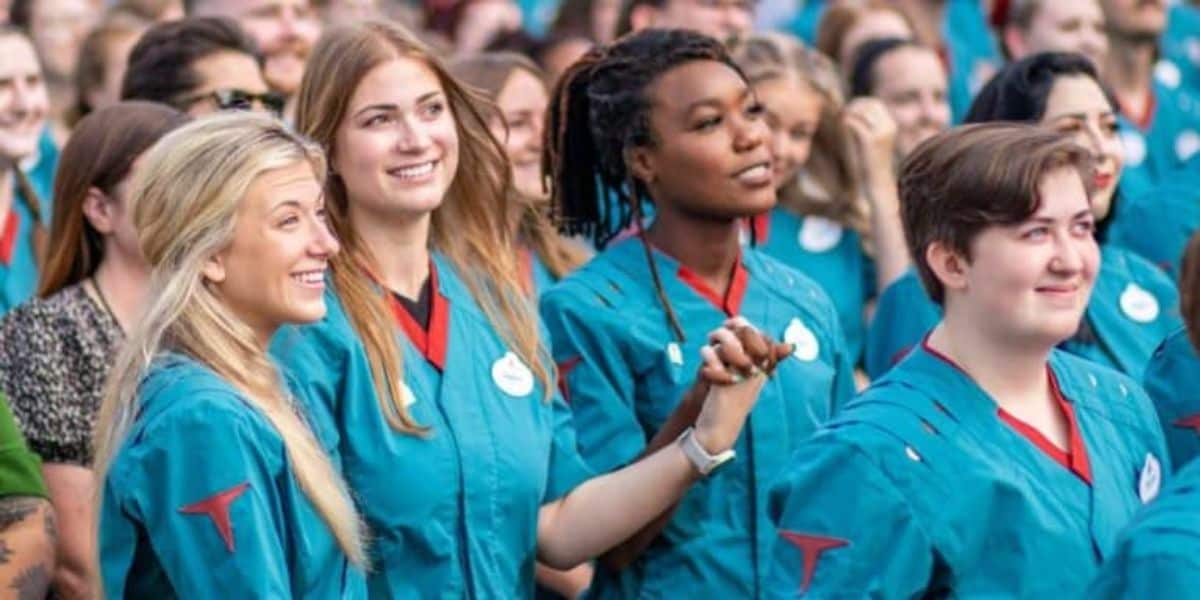Impact of New OSHA Guidelines on Workers
The Trump Administration’s recent modification of Occupational Safety and Health Administration (OSHA) guidelines has raised significant concerns regarding workplace safety among Disney cast members, SeaWorld employees, and Universal team members. The changes involve revising the general duty clause, which previously protected workers in environments lacking specific safety regulations.

With the new guidance, the definition of known hazards has expanded to exclude those inherent to an employee’s professional duties. This modifies employers’ responsibilities for safeguarding their employees against dangers commonly associated with their roles.
Consequently, Disney cast members face heightened risks for heat-related illnesses, injuries sustained during performances, and other potential hazards without the robust protections that had previously been in place.
Moreover, the altered guidelines will make it increasingly difficult for workers to pursue legal claims against employers for injuries occurring on the job, complicating the path to obtaining compensation for injured employees.

Historical Context of Workplace Safety in Theme Parks
The revisions to OSHA’s regulations draw on a historical context marked by significant events in the theme park industry. In 2010, a tragic incident at SeaWorld led to the death of an employee during a performance involving a killer whale. Following this incident, OSHA imposed a $70,000 fine on SeaWorld, citing multiple safety violations under the general duty clause.

SeaWorld contested the fine, arguing that the risks associated with working closely with animals were not fully understood. This legal dispute culminated in a ruling from the U.S. Court of Appeals, which upheld OSHA’s authority but also included a dissenting opinion that hinted at the potential for reassessing existing safety standards. The recent modifications introduced by the Trump Administration tap into this legal precedent, raising alarm among workers within theme parks such as Disney and Universal.
Industry Reactions to Safety Rule Modifications
Industry professionals and advocacy groups have strongly opposed the Trump Administration’s actions. Paul Cox, acting business manager of the International Alliance of Theatrical Stage Employees Local 631, emphasized that the changes to OSHA guidelines are detrimental to workers’ safety. He stated that all employees, including those in entertainment, deserve the same protections as workers in other sectors.

Union representatives and worker advocacy organizations have reiterated their commitment to ensuring fair treatment and safety for all employees, including Disney cast members and Universal team members. The consensus among these stakeholders is that safety cannot be compromised for business efficiency or profit margins. The entertainment industry, particularly in theme parks, thrives on the health and safety of its performers, and many believe that these new rules jeopardize both.
Future Implications for Cast Members and Theme Parks
The new regulations could have extensive implications for cast members in the Disney and Universal parks, creating a challenging environment for workers. The reduced protections may lead to increased injuries, which not only threaten the health of employees but also potentially endanger job security as cast members may find themselves unable to perform due to injury or illness.

As the industry adapts to these changes, labor advocates are urgently calling for improvements in workplace safety standards. The current landscape suggests that workers may need to band together to advocate for reform in safety regulations and ensure that their rights and well-being are duly protected.
The recent modifications to OSHA guidelines under the Trump Administration present significant risks for Disney cast members, Universal team members, and others within the theme park sector. The new regulations represent a departure from established worker protections, prompting industry professionals and advocates to reevaluate the importance of safety standards in entertainment workplaces. As these changes unfold, the focus on safety in the industry may take on renewed urgency.





